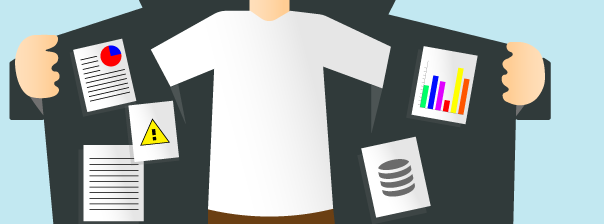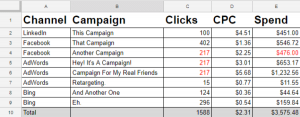It can be very tempting to purchase data. When you’re trying to get people off your back, it’s an easy and convenient way of growing your list total. A bigger list total brings all sorts of wonderful promises with it: Greater influence, greater brand awareness, greater profit. Unfortunately it almost never works out that way… and here’s why!!

1. People don’t want your emails
They weren’t really paying attention when they left the infamous “third parties” checkbox (about the size of a pin head) ticked. They were tricked, possibly coerced. It might be legal (and I emphasise might), but it’s not necessarily ethical. Now, I don’t want to turn my blog post into a lecture on philosophy, nor do I need to; the ethics of it don’t actually change the outcome: People don’t want your emails.
They probably won’t read them. They’re likely to be annoyed that you’re sending them. They know they didn’t subscribe to them.
2. This will affect your reputation
If you send unwarranted emails to people, they won’t open them as much, they won’t interact with them as much and they will unsubscribe or junk them at a greater rate. This will have negative implications on your reputation as a sender and you’ll find yourself with poorer inbox placement. Your reputation is like your credit rating: Easy to lose and difficult to build.
Even worse than a highly unengaged audience is the threat of spam traps. Spam traps come in different forms, but the worst kind of spam trap is an email address set up by an email provider or spam monitoring agency, specifically to catch spam. They don’t use the address to sign up to anything, but they might leave it where it can be scraped by an automated robot. If you start sending marketing emails to this address, that’s conclusive enough for the email provider to know that you are buying dodgy data. How much do you trust the company that you are purchasing data from?
Spam traps are beyond a burden to get rid of. You’ll never be told what the spam trap address is. You’ll need to split the data into control groups to find out in which group the address lies, then drill down further into that group. Needle meet haystack. This takes weeks and will greatly reduce the amount you can send in this period, due to the control groups. Now imagine you have ten spam traps rather than one, this will render the whole dataset unusable.
3. That’s against the law
I said earlier that “It might be legal (and I emphasise might), but it’s not necessarily ethical”.
It’s not against United Kingdom law to purchase data, but it is against the law to send marketing emails to individual customers without permission. If you’ve purchased some data that you’ve found to contain a spam trap, then that’s a good indicator that you’re probably breaking the law.
You can read more about this here.
Business & Finance Articles on Business 2 Community(95)
Report Post







